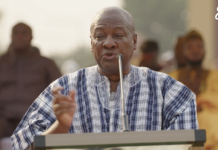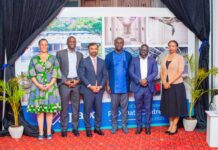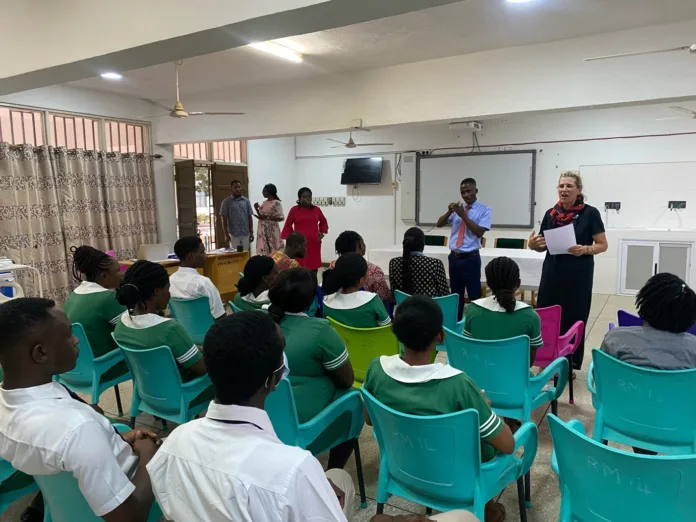
Akua Afarebea, a Ghanaian deaf woman in her mid 20s, had her first baby at the age of 17. She now has 3 children and does not want to have any more children, due to economic hardship.
Her challenge has however been how to access information on the right choice to make regarding her sexual and reproductive health.
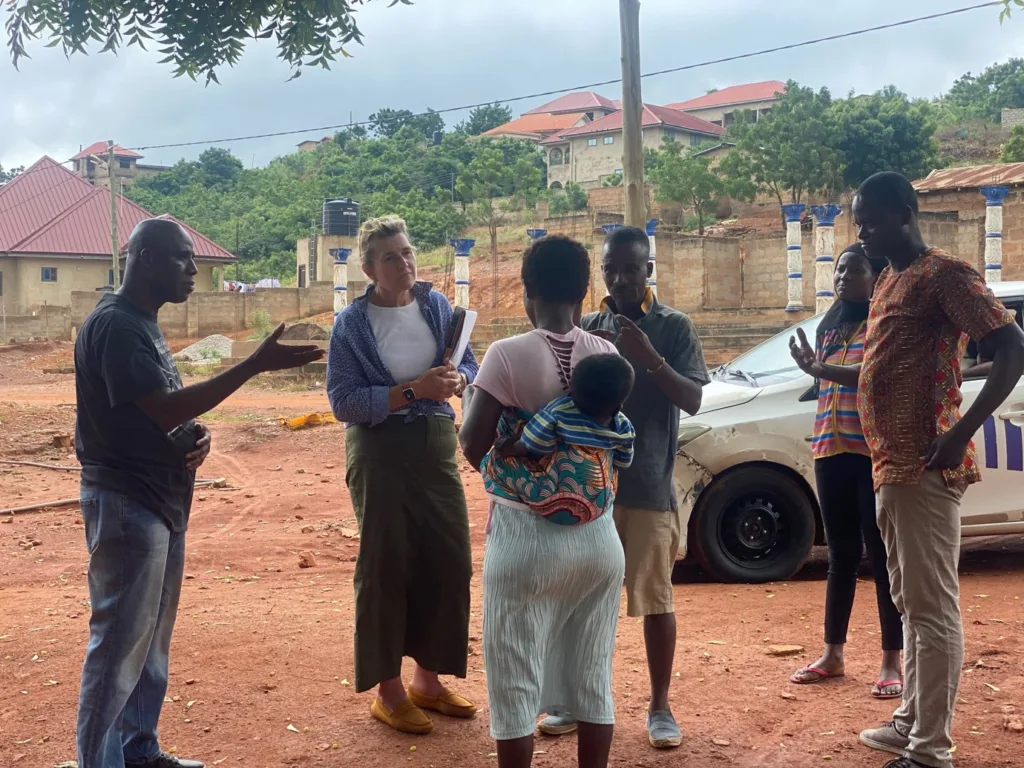
“It has been a big problem for me over the years. If I had got access to information on contraception and other reproductive health services, I would have made a better choice and not have given birth within the space I did”, Akua intimated.
Akua is not the only deaf woman encountering challenge in asserting her sexual health and reproductive rights.
28-year-old Belinda Agyei, who is yet to have her own kids, says she has had to turn to friends and family for advice since she finds it unhelpful visiting the health facility in their village for reproductive health services & advice.
Akua and Belinda, who both live in Adamorobe, a community known for its high incidence of hereditary deafness in Ghana’s Eastern region are just two out of thousands of deaf women struggling to access healthcare.
The challenge has mainly been as a result of the communication barriers they encounter anytime they seek medical care.
“We rather resort to self-medication than visiting the health center to avoid being misunderstood and given wrong diagnosis”.
Several other hearing-impaired persons who confirmed the ordeals they go through whenever they seek medical care, say they now resort to all sorts of concoctions and herbal medicines to survive whenever they fall sick.
“Whenever I have severe pains anywhere in my body or I feel unwell, I use herbs. The herbal medicines and concoctions have been helpful”,says another hearing-impaired man in the community.
According to data from Ghana’s 2021 population and housing census, more than 470,000 people in Ghana have some degree of hearing loss.
Out of this number, over 385,000 have some difficulties, while nearly 20,000 cannot hear at all.
Despite these staggering statistics, very few health workers in Ghana understand the language of the deaf, which is sign language.

So, they often find it difficult communicating with patients who have hearing impairment.
Ghanaian journalist and 2021 Mandela Washington fellow, Alice Aryeetey has therefore collaborated with Associate Director of Global Health & Development at Dartmouth College’s Dickey Center for International Understanding, Dawn Carey to help address the challenge.
They also want to help increase access to successful reproductive and sexual health information for deaf women in Ghana.
The first phase of the project, which is funded through the reciprocal exchange grant component of the Mandela Washington fellowship, with support from the John Sloan Dickey Center for International Understanding at Dartmouth College, proposes to co-develop clinical protocols and tools for both clinicians and deaf persons in Ghana.
The project is themed “DEAFinitely Healthy: Reproductive Health Communication Tool Development for Deaf women in Ghana”.
In-person Workshops were organized for practicing nurses and midwives, doctors and trainee nurses and midwives at the Obs. & Gynecology department of Ghana’s premier hospital, Korle Bu Teaching hospital, the Adamorobe Health Centre in the Eastern Region, and the Nursing and Midwifery Training College at Korle Bu in Accra.

Simulation exercises were also conducted to ascertain and assess the real challenges both clinicians and deaf people face whenever they come into contact at the health facilities.
During the simulations, the obvious communication barrier hindering proper healthcare for the deaf came to light, with some clinicians totally misunderstanding the scenarios the deaf patients acted out.
“I tried to tell the nurse that I have three children, but I am currently financially unstable, so I needed contraception to avoid a fourth pregnancy, but the understanding the nurses got was that I have loose bowels or a runny stomach for three days. That is totally different from the predicament I narrated & that is the challenge we face daily”, says one of the deaf simulated patients.
The clinicians who took part of the simulation and workshops, confirmed how frustrating it is to not understand their deaf patients who come to them for care.
They say they try their best to understand the hearing-impaired patients by making all sorts of signs but that seems not to be enough.
The story was no different at the Korle Bu Teaching hospital, where deaf patients during the simulations spent time trying to explain their conditions to the clinicians but it was a tough one.

Some deaf patients also ended up spending more time at the health facilities because whenever their names were mentioned, there was no one to prompt them.
The Chief Nursing Officer at the Korle Bu Obs. and Gynecology department, Joyce Quarcoo, confirmed there is always a challenge whenever a deaf person visits the facility.
She wants the government to consider training more health workers in basic sign language to make it easier to communicate with the deaf patients.
“It is really challenging whenever we have deaf people coming for care. They don’t come here often, but when they do, it’s always tough to communicate with them. It will be good if the government helps in training more nurses in basic sign language.”, she added.
Despite the Introduction of the teaching of basic sign language in the curriculum for nursing students in the West African country, it still seems not enough as the teaching is only done for a semester.
The final year nursing and midwifery students who were engaged in the simulation and workshop, tried recalling what they were taught in their first year, but could not utilize it effectively.
They want the government to extend the period within which they are taught the basic sign language in school.
The principal of the Nursing and Midwifery Training College, Gladys Kporku, says despite the efforts and strides being made by her school and others to ensure students are well equipped to provide inclusive healthcare after school, there is the need to bridge the communication gap.
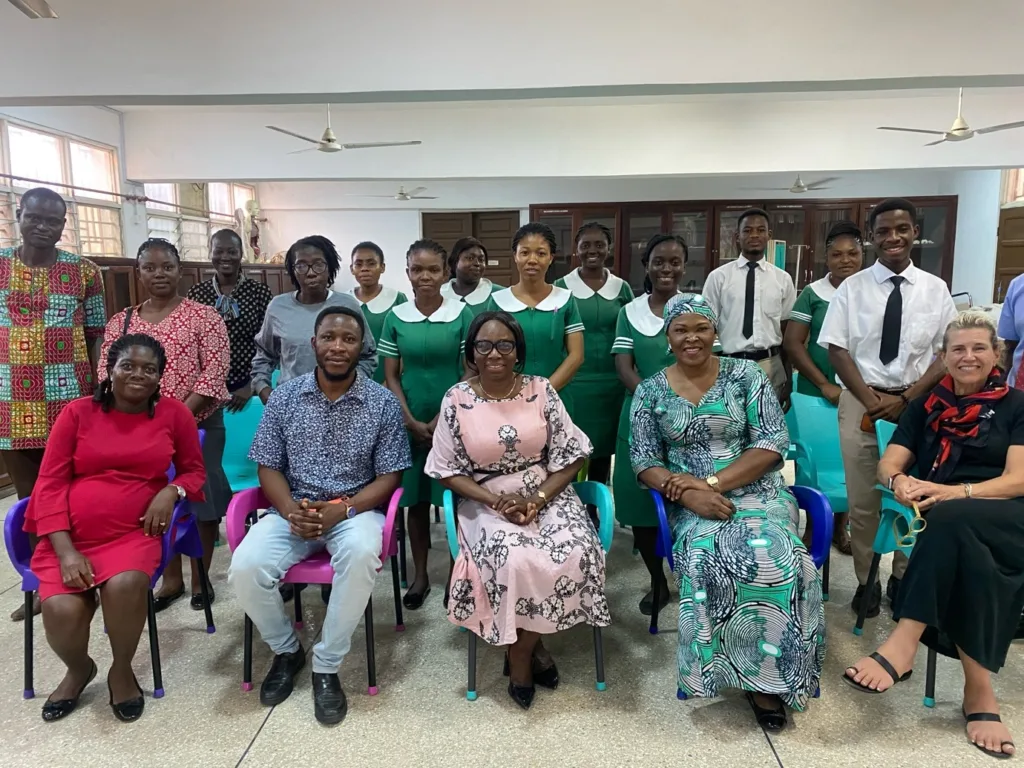
President of the Ghana National Association of the Deaf, Matthew Kubachua, who expressed optimism about the resourcefulness of the project by Dawn Carey and Alice Aryeetey, was however worried over the seeming neglect of the hearing-impaired persons in Ghana.
With the first phase of the project focusing on increasing access of sexual and reproductive health information for deaf women by understanding the gaps and challenges, project partners, Dawn Carey and Alice Aryeetey, are hopeful of coming up with training protocols and basic communication materials that would make it easier for clinicians and deaf patients’ communication at health facilities in Ghana and beyond.
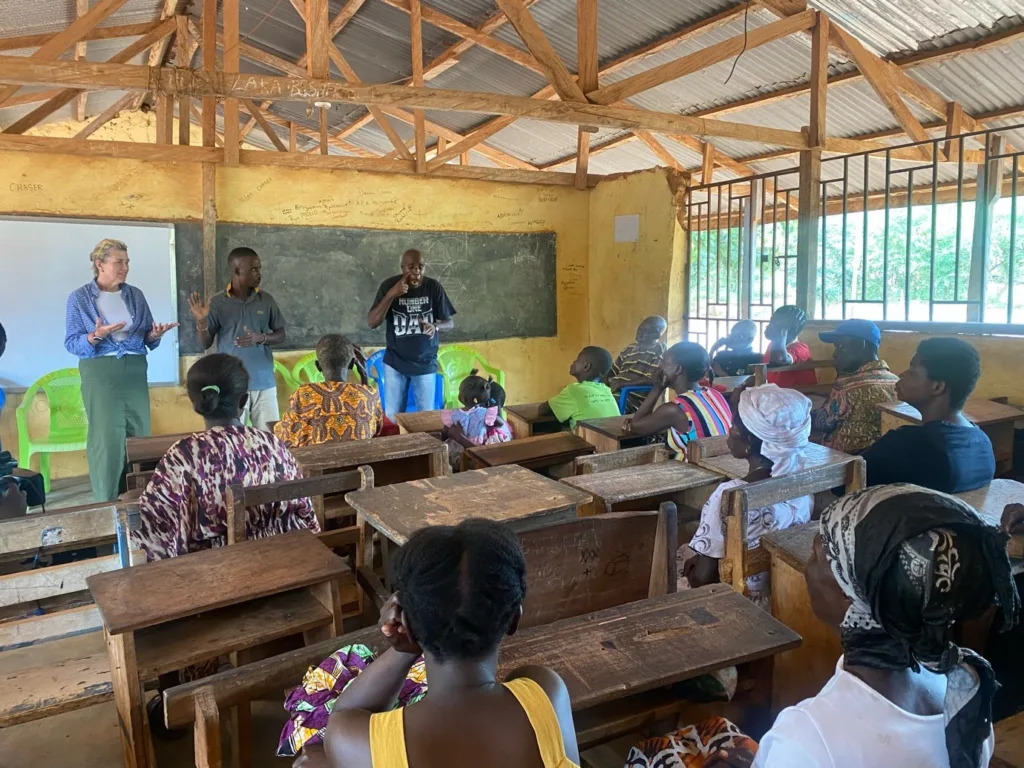
For many hearing-impaired persons like Akua and Belinda in Adamorobe, all they desire is an all-inclusive health care system that will factor the needs of the deaf.
They hope more healthcare workers would be trained in sign language to help bridge the communication gap whenever there is a need for them to visit the hospital.
It is also their fervent hope that the development of the communication tool for deaf women through the DEAFinitely Healthy project, will come to fruition to help save lives in the interim.
Source: Ghana/Starrfm.com.gh/103.5FM/Alice Aryeetey


